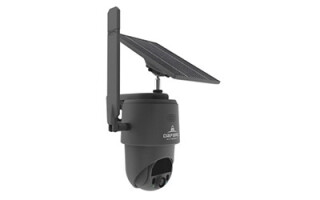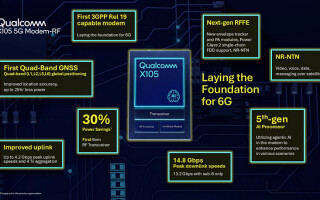Best-in-Show at Sensors Expo/Embedded Technologies Conference 2019
June 26, 2019
News
Embedded Computing Design's Best in Show Awards at Sensors Expo/Embedded Technologies Expo and Conference highlight some of the most innovative solutions from the event, which are listed below.
For the first time, the Embedded Technologies Expo and Conference joined Sensors Expo 2019 at the San Jose McEnery Convention Center. If nothing else, the co-located events demonstrate the closer and closer integration of electronics disciplines in the pursuit of truly deployable IoT and AI technologies.
Embedded Computing Design's Best in Show Awards at Sensors Expo/Embedded Technologies Expo and Conference highlight some of the most innovative solutions from the event, which are listed below.
Maxim Integrated Health Sensor Platform 2.0

The Health Sensor Platform 2.0 (HSP 2.0) is the first wrist-worn platform for monitoring ECG, heart rate and temperature. It enables quick evaluation of Maxim’s portfolio of wearable products to significantly shorten development time for custom fitness, health, and clinical applications, as it can monitor ECG, heart rate, and body temperature when deployed on a wrist-worn wearable device. Also known as MAXREFDES101#, the HSP 2.0 includes a watch enclosure and biometric sensor hub with embedded heart-rate algorithm. The algorithm output and raw data can be streamed through Bluetooth to an Android® app or PC for demonstration, evaluation, and custom development.
Since it’s an open platform, designers can even evaluate their own algorithms on the board.
More information: www.maximintegrated.com/en/design/reference-design-center/system-board/6779.html
Microchip PIC-IoT WG Development Board
- eXtreme Low-Power PIC MCU: Ideal for battery-operated, real-time sensing and control applications, the PIC24FJ128GA705 provides the simplicity of the PIC architecture with added memory and advanced analog integration.
- Secure Element: The ATECC608A provides a trusted, protected identity for each device that can be securely authenticated. Devices come pre-registered on Google Cloud.
- Wi-Fi Connectivity: To relieve designers from needing expertise in networking protocols, the ATWINC1510 is a fully certified IEEE 802.11 b/g/n module.
Combined with Google Cloud Platform’s network infrastructure, the simplicity of the board makes powerful analytics tools and machine learning capabilities accessible to anyone.
More information: www.microchip.com/design-centers/internet-of-things/google-cloud-iot/wi-fi-enabled-boards
STMicroelectronics' STM32H7 Series Dual-Core MCU
Dual-core STM32H7 MCUs from STMicroelectronics combine dual-core punch with power-saving features and enhanced cyber protection. They extend the STM32H7 series by adding a 240 MHz Cortex-M4 core to the existing STM32H7 series 480 MHz Cortex-M7 core, the highest performing member of Arm’s Cortex-M family. With ST’s smart architecture, efficient L1 cache, and adaptive real-time ART Accelerator, the MCUs set new speed records at 1327 DMIPS and 3224 CoreMark™ executing from embedded Flash. ST’s Chrom-ART Accelerator delivers an extra boost to graphics performance. To maximize energy efficiency, each core operates in its own power domain and can be turned off individually when not needed.
More information: www.st.com/stm32h7
wolfSSL embedded SSL Library
The wolfSSL embedded SSL library is a lightweight SSL/TLS library written in ANSI C and targeted for embedded, RTOS, and resource-constrained environments – primarily because of its small size, speed, and feature set. It is commonly used in standard operating environments as well because of its royalty-free pricing and excellent cross platform support. wolfSSL supports industry standards up to the current TLS 1.3 and DTLS 1.2 levels, is up to 20 times smaller than OpenSSL, and offers progressive ciphers such as ChaCha20, Curve25519, NTRU, and Blake2b. User benchmarking and feedback reports dramatically better performance when using wolfSSL over OpenSSL.
More information: www.wolfssl.com/products/wolfssl




